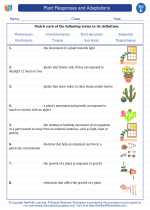The Immune System
The immune system is a complex network of cells, tissues, and organs that work together to defend the body against harmful invaders, such as bacteria, viruses, and other pathogens. It is like the body's own defense system, constantly working to keep us healthy and protected.
Key Components of the Immune System:
- White Blood Cells: These are the main players in the immune system. They help to identify and destroy harmful invaders.
- Antibodies: These are proteins produced by the body to help recognize and neutralize specific pathogens.
- Lymphatic System: This system includes the lymph nodes, spleen, and thymus, and it plays a key role in the immune response.
- Bone Marrow: This is where many of the body's immune cells are produced.
How the Immune System Works:
When a harmful invader enters the body, such as a virus or bacteria, the immune system kicks into action. The white blood cells and antibodies work together to identify and neutralize the threat. This process can take some time, which is why we may feel unwell when we are sick. However, once the immune system has successfully fought off the invader, it "remembers" it, which helps to provide immunity in the future.
How to Keep the Immune System Healthy:
- Eat a balanced diet: Eating plenty of fruits, vegetables, and whole grains can help support a healthy immune system.
- Get enough sleep: Adequate rest is important for a strong immune system.
- Stay active: Regular exercise can help keep the immune system functioning well.
- Practice good hygiene: Washing hands regularly and avoiding close contact with sick individuals can help prevent the spread of germs.
Study Guide:
Here are some key points to remember about the immune system:
- The immune system helps to protect the body from harmful invaders.
- White blood cells and antibodies are important components of the immune system.
- The lymphatic system and bone marrow also play crucial roles in immune function.
- The immune system "remembers" invaders it has encountered before, providing immunity.
- Healthy habits, such as eating well and getting enough sleep, can support a strong immune system.
Remember to review these points and feel free to ask any questions you may have!
[Immune] Related Worksheets and Study Guides:
.◂Science Worksheets and Study Guides Fifth Grade. Plant Responses and Adaptations

 Activity Lesson
Activity Lesson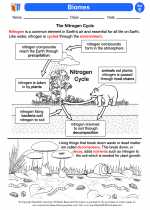
 Worksheet/Answer key
Worksheet/Answer key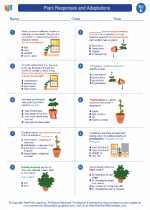
 Worksheet/Answer key
Worksheet/Answer key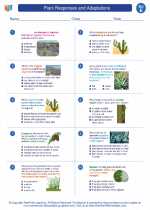
 Worksheet/Answer key
Worksheet/Answer key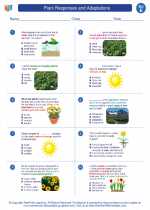
 Vocabulary/Answer key
Vocabulary/Answer key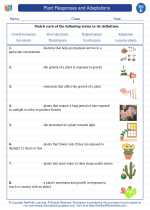
 Vocabulary/Answer key
Vocabulary/Answer key